While in recent weeks I’ve Britain has a bit of a controversy over the Songbird Survival proposal, Cyprus too has had an issue with Corvid shooting. A couple years ago in fact, I’d done some research on this and found some interesting information…
From a 2003 article in the journal Zeitschrift für Jagdwissenschaft (Science magazine for hunting), formerly the European journal of wildlife research, I found a few interesting facts on the observed impacts of Corvid hunting in Cyprus. The article is titled The effect of Corvid shooting on the populations of Owls, Kestrels and Cuckoos in Cyprus, with notes on Corvid diet (.pdf). A little background first:
In Europe and North America Magpies, as well as other Corvids, have long been considered serious predators of eggs and young gamebirds, particularly pheasants and partridges. Similarly on the island of Cyprus, Corvidae are considered pests. Five of them, the Magpie, Hooded Crow, Raven, Jackdaw, Cypus Jay are resident breeders. The sixth species, the Rook, is a winter visitor. All of them are considered as vermin by Cypriots but only the Magpie, Hooded Crow and Jackdaw are considered problematic to the extent of requiring population control. The raven was traditionally considered a serious predator to young gamebirds and an agricultural pest, but recently is threatened by extinction.
To reduce numbers of Corvids, they may be shot whenever hunting is permitted, i.e. in August and September (Wednesdays and Sundays and in some areas daily), from November to December, (Wednesdays and Sundays only), from January to March (Wednesdays and Sundays and in some areas daily). In addition, their shooting is allowed during the closed season for hunting, in April and May which is the nesting season, with the issue of special permits to groups of hunters. Although it is illegal to destroy the eggs of wild birds in Cyprus, it is permitted to destroy the eggs of Corvids and House Sparrows, for the protection and development of game and wild birds). Because of this, it is popular practice during the nesting season to shoot individuals of these species but also their nests. The nests of Magpies and Hooded Crows, which are built on trees, are particularly vulnerable to shooting. Jackdaw nests are located on cliffs, roofs and in tree holes, and are less vulnerable.
The destruction of these nests threaten a number of protected species, because they use old nests of Magpies and Hooded Crows for nesting. These species are the Long-Eared Owl, the endemic subspecies of Scop’s Owl and the Kestrel. In addition, the Great Spotted Cuckoo parasitizes Corvids by laying one or more eggs in each nest, and leaving them to the care of the nest owner. Presently there are no studies in Cyprus on the effect of nest shooting on the species that use old nests for breeding.
So what is the toll of these shootings?
The report’s author notes that while the long-eared owl population in Europe is considered secure, breeding records in Cyprus are rare. The author (a researcher from the Ministry of the Interior for Cyprus) describes 9 Long-Eared Owl nests that have been recorded. Of those, four were in permanent game reserves and one in the UN buffer zone, where no hunting was permitted, and four located in areas where hunting was permitted. Of the five in the game preserve areas, only one nest was unsuccessful, as a local hunter collected the nestlings and donated them to the Larnaca Zoo (where they died a few days later). Of the four in hunting permissible areas, only one was successful, whereas for two the nestlings were taken (again, they died) and one was shot by a game warden (who was surprised to see an owl fall from the next, apparently thinking it was a crow’s nest). 8 of the 9 nests were known to be formerly built by Corvids, the ninth is unknown.
The Cypriot Scop’s Owl meanwhile, an endemic subspecies, is a more common resident. The author notes that this owl lays its eggs in tree holes or walls and ruins, in wells and in roofs of houses and in old magpie nests. Consequently, the Scop’s Owl it is less threatened by being shot in Magpies nests than Long-Eared Owls. More of a problem for the Scop’s Owl here is finding sufficient tree holes for nesting. With the semi-arid conditions here in Cyprus though, trees grow slowly and are often felled before even developing cavities. The author suggests more nest boxes for the Scop’s Owl as a remedy, citing evidence from mainland Europe that this species responds well to such efforts.
The Great Spotted Cuckoo on the other hand is a parasitizer of Corvids and Magpies in particular. Despite this, there didn’t seem to be much impact by shootings on their nestings, citing the observations that adult female Cuckoos are not harmed, and that the large number of eggs laid acts as a safety factor to its population.
From reading these observations, I think it safe to say that the greatest threat is to the most rare of the species whose nests are regularly mistaken for active Corvid nests – the Long-Eared Owl. With such a small resident population, any failed nests are highly injurious to its population, and extra care needs to be taken.
I also note the reference to the Raven population in Cyprus – now all but exterminated from Cyprus (no known Raven nests in Cyprus this year, from what I’ve heard mentioned by the informal birding network). Shooting has very likely hastened this decline.
And finally, with regards to diet – the author found that the Corvids ate insects such as grasshoppers and cicadas, supplemented with barley and wheat. Contrary to hunter’s argument in favor of the Corvid hunts, there was no evidence of game bird remains found in Magpie or Jackdaw gizzards. In fact, they appear to help control populations of insects harmful to crops.
So from all of this, the researcher from the Ministry of the Interior concludes on empirical grounds that (a) the main argument for the hunts is false, and (b) the hunts threaten rarer species, and so hunts during Spring should continue to be banned.
My Reaction: Thumbs up to that!!
Reference:
- Hadjisterkotis, E. (2002) Z Jagdwiss 49 (2003), 50-60


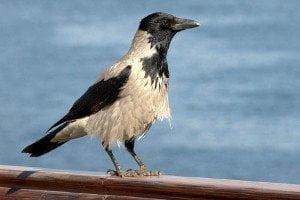




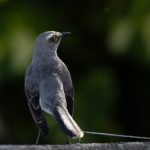
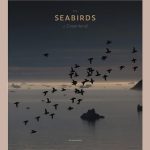

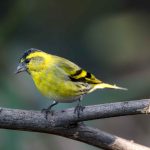
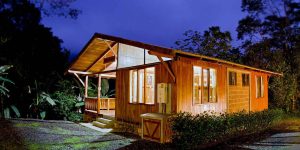
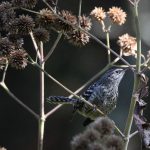
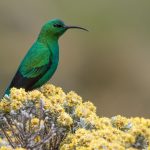
Leave a Comment